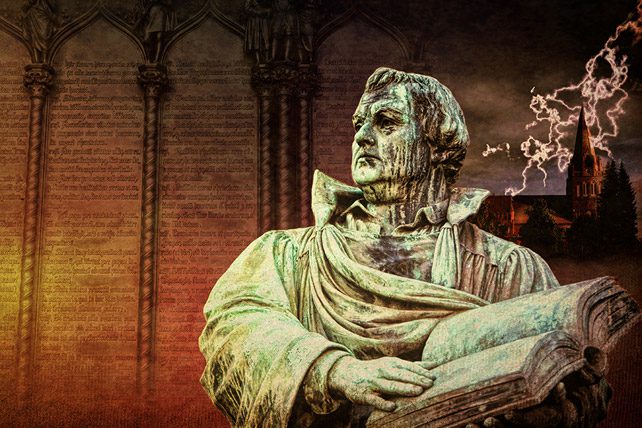In the early seventeenth century, the Reformation spread to the new world with the arrival of the Pilgrims and colonies of Puritans who brought Reformed theology and the Geneva Bible with them.
Reformation theology dominated Protestant evangelicalism for decades but became diluted later under influences of Pietism and Finneyism.
By the end of the twentieth century, Reformation theology declined dramatically in the Western world, being assaulted by nineteenth century liberal theology on the one hand, and the influence of Arminian theology on the other. This was especially true in America.
In the present scene of American evangelicalism, Reformation theology is a minority report. The dominant strands of theology that reign in current evangelical circles are dispensationalism and neo-Pentecostal charismatic thought. The phenomenal spread and growth of dispensational theology in America is a fascinating chapter in church history. Having its roots in British Plymouth Brethren suppositions, dispensationalism spread rapidly in the late nineteenth and early twentieth centuries. Fueled by the Bible School movement, prophecy conferences, and the preaching of men like D.L. Moody, dispensationalism gathered enormous popular support.
The American version of dispensationalism got a great boost by the publication of the Scofield Reference Bible. The Scofield Bible, with its study notes, served as a popular tool for the spread of dispensational theology. This theology was forged by men who had their roots predominately in Reformation thought. The themes of classical Reformed theology were modified significantly by this movement.
The New Geneva Study Bible (now the Reformation Study Bible) is the first distinctively Reformed study Bible in English to appear since the Geneva Bible in the sixteenth century. It seeks to recover the theology of the Reformation and provide a guide for the laity to understand its historically, doctrinally, and biblically rich system. Its importance to American Christianity is enormous. It is my hope that it will help guide English-speaking evangelicals back to their Reformation roots. More importantly, it is designed to call evangelicals back to the Bible itself and to their historic confessions of biblical theology.
Beyond the borders of America, the New Geneva Study Bible (now the Reformation Study Bible) may be used to expand the light of the Reformation to lands where the original Reformation never reached, especially to Russia and Eastern Europe.
In our day we have seen a revival of interest in the Bible and a renewed commitment to the authority and trustworthiness of Scripture. But the Reformation was more than a doctrine about the Bible. It was sparked by a deep and serious study of the Bible. It is not enough to extol the virtue of Scripture—we must hear the teaching of Scripture afresh. It is only by a serious and earnest recovery of biblical truth that we will be able to avoid falling into a new cesspool of heresy.
This article originally appeared here and is used by permission.

